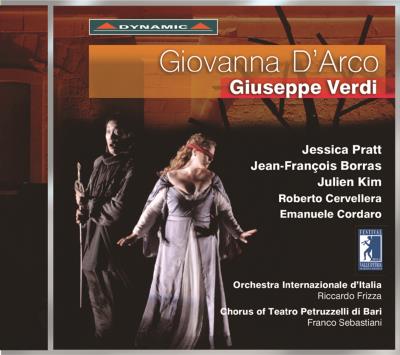JESSICA PRATT : bel canto at its best !
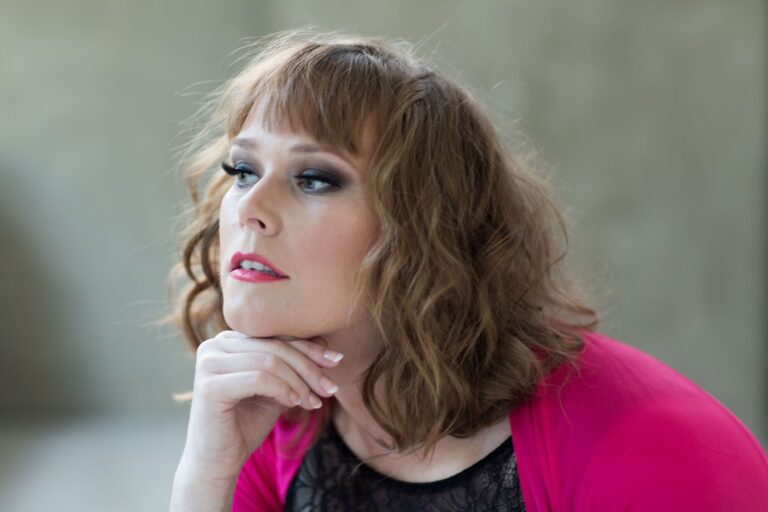
After a dazzling Elvira (I puritani) at the Théâtre des Champs-Élysées, Jessica Pratt won a veritable triumph in Beatrice di Tenda at the San Carlo in Naples. She is now preparing to return to the four female roles in Les Contes d’Hoffmann in Liège, and to take on the « role of roles », Norma, next spring. Meet a passionate, enthusiastic… and hard-working soprano!
Nicolas MATHIEU : How did you come to choose the lyrical path?
Jessica PRATT : I started singing because my father is a tenor. I was brought up in the theatre world and around a lot of music and opera. My mother is a visual artist so we would spend the weekend in the community theatre where she would make a set or paint and my father would conduct the orchestra or sing. So for me, opera was a normal thing, and already a big part of my life.
As a child I thought it would be a great job because you get flowers and get to dress up in beautiful gowns! (laughs) I still remember the first time I saw my dad sing. My grandma was seating next to me. I was out of my mind: one because he was kissing another woman (I told my grandma ‘but that’s not my mum!’), and then because he got killed. They had to take me backstage to show me he was still alive! (laughs)
I grew up with it. When we went to Australia, Dad sang in a chorus in Queensland and did small roles in the opera there. I saw my first Lucia. It was in the John Copley production. As Lucia sings her final eflat she falls on the great staircase with her head down and her feet up, I decided I had to learn to sing in that position and would practice lying on the couch with my feet up and head on the floor. And I actually end up doing this very production when I debuted Lucia in Australia almost 20 year later and was very proud to show my long practiced upside down eflat!
I wanted to study singing straight away but my father wanted my voice to develop naturally. So, he insisted that I play a wind instrument first with my siblings. I chose the trumpet, my sister the clarinet, my brother the trombone. We would have Christmas carols at home where my dad would play the tuba. It was fun! It was a noisy, messy household, with a lot of people coming and going and a lot of parties. It was a pretty crazy childhood! (laughs)
N. M. : Did playing the wind instrument help you in the process of learning singing?
J. P. : Singers are wind instruments as well, as everything is based on the breath. It was a good choice to learn this instrument while I was young. It developed my breathing, my musicality, and also the feeling that you are a musician among the other musicians. Trumpet is still my favourite instrument!
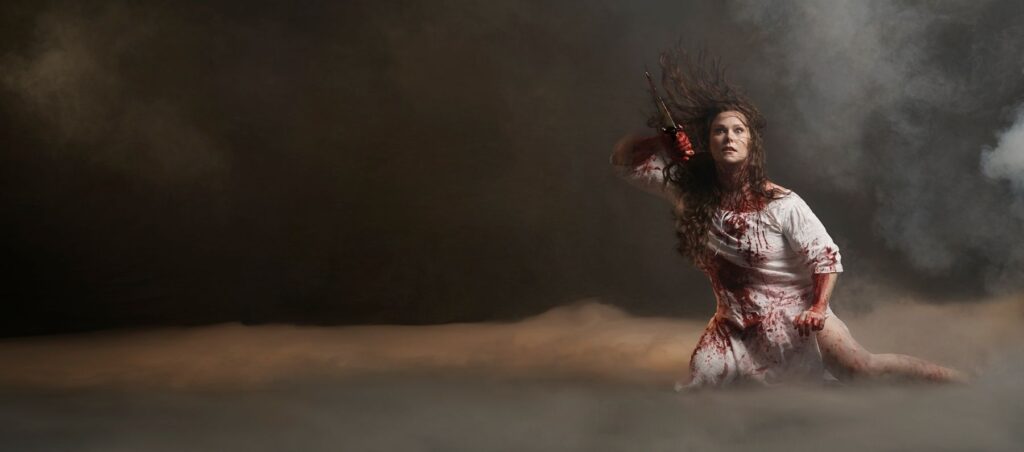
Lucia di Lammermoor (Opera Australia, © D.R.)
N. M. : What about the bel canto lifestyle?
J. P. : It was not really a choice. If you want to sing a certain repertoire, you must live in a certain way. To sing bel canto well, I have to practise a lot: vocalising, breathing exercises… You can’t shout, you can’t go out, you can’t drink. It is sort of very strict what you eat, what you drink, how you behave in general. Your body is your instrument, so it is very important how you live. But all of this discipline then gives you the freedom of not being nervous on stage. Now, I’m pretty sure my family thinks I’m an alcoholic because every time I come back home I drink a glass or two of wine with dinner every night because I am on holiday, I can relax all the rules and don’t have to be so strict! (laugh) And then I go back to work and go back to living life like a recluse.I’m fortunate because I really love this music. I know that a lot of musicians don’t share my opinion of bel canto. It is dramatic but in a different sense than what one is used to. Nowadays, everything is happening so quickly. I like the fact that with bel canto, an idea needs time to develop. Also on stage, when they talk about emotion, it is not like Verdi where there is a new emotion every 5 seconds. It is one emotion for 20 minutes, in a slowly developed and profound way, even meditative I could say. I like these sort of things.
When I come home, I spend most of my time in my garden. Gardening is a bit like singing. If you keep working at it and you do small things but consistently, then, over the years, you see the results.
N. M. : How does one become a soprano drammatico d’agiltà? It is such a rare type of voice!
J. P. : As for me, with patience because in the beginning of my career, I had a weak middle voice, but I didn’t push it. One of the reasons this particular voice type is rare is because a lot of lyric sopranos could have been dramatic coloraturas, but they leave the belcanto repertoire to pursue a more popular repertoire in which there is more work.
Also, physically, I am a big person. When I started in this business, I didn’t have the size of a regular coloratura soprano. Usually, they are not very tall and physically small. Whereas colaratura drammatica were quite big: Sutherland was quite a bit taller than me, Callas also was a very tall woman… It is a different body in which the voice resides. You have the dramatic or full lyric voice and the extension of the coloratura. And, of course, the training. Nobody is born a coloratura, that part of being a coloratura soprano takes practice.
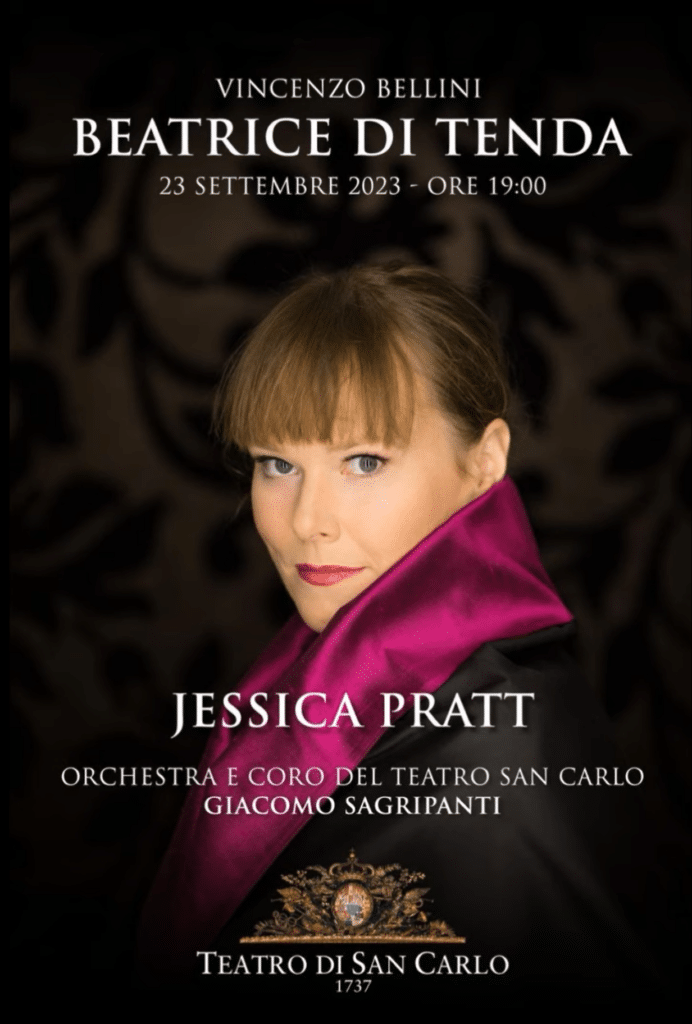
N. M. : You’ve just won a veritable triumph in Naples, singing the title role of Bellini’s Beatrice di Tenda in aconcert version. A rare and difficult role. Was this your first time singing it? How did the concert go?
J. P. : It was my first time singing it. I thought about it for many years. For me it was a step further to the dramatic coloratura repertoire. I delayed it as much as possible because I don’t want to stop singing lyric coloratura.
I was actually very happy because I didn’t expect to feel so comfortable in this role. This was a concert and I usually prefer to make debuts in a production where we have more time to rehearse the role and to explore it onstage so I was very pleased with how it went despite it being in concert form.
I loved the role, the character, the way Bellini wrote her and I hope to debut it in a production in the near future. I will sing Norma soon, so Beatrice was a first dive into the water.
N. M. : Norma is indeed coming at Palm Beach next April. The ‘role of roles’… How do you feel about it? What is your conception of the character?
J. P. : It is very exciting. I have productions planned in the future until 2027 in Europe, North America and Australia. My conception of the role is straightforward. She is a woman that has an important role in society and at the same time has a completely secret second life going on, and all these huge emotional turmoils she must hide from the population. I think a lot of us must do this, and we manage to keep going and to put on a public face of serenity while we have so much turmoil in our personal life, and you would not know. I find that part of her very fascinating.
I like the way Bellini writes women in general. He does not write them as victims. They have their independence, their strength. I like the fact the characters are not one-sided but have different levels in his operas.
N. M. : Les Contes d’Hoffmann is an opera that you sing regularly. You have just performed the four female roles in Sydney, you have already sung them in Bordeaux in 2019, and you will be repeating the feat at the Opéra Royal de Wallonie next November. How do you manage to perform these four roles in a single evening?
J. P. : I am helped by the fact that I have spent most of my career training and singing bel canto operas. When you look at a lot of the bel canto operas, one belcanto role is often just as long as the four women sung together. Semiramide is actually much longer and heavier for me. Olympia is really just an aria so more acting than singing and she is usually my warm up for Antonia, which is quite a big role, Giulietta also. And then Stella, whose length depends on the productions. So, for me, it feels similar to performing a long uncut bel canto opera. It is still exhausting because you are constantly on stage, and you must sing a lot. Also, vocally, Offenbach is not a bel canto composer, so he is not always writing in a healthy way. But my training allows me to navigate in this music in this way.
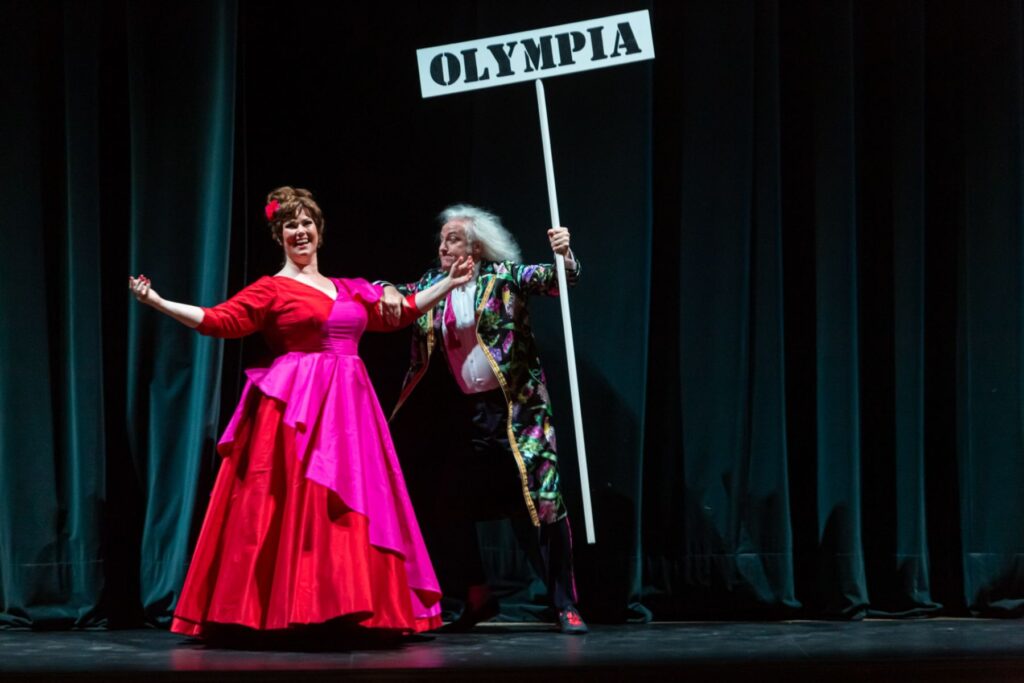
Olympia à l’Opéra national de Bordeaux (© Eric Bouloumié)
N. M. : How do you embody the 4 characters?
J. P. : The way Offenbach wrote the 4 characters is very different vocally. Olympia is extreme coloratura and robotic, whereas Antonia is very lyrical and Giulietta even lower and sensual. For me, the vocal logic is perfect because it starts high and then it goes down. If Offenbach had put Giulietta first, I would have died! (laughs)
N. M. : Is it pleasant or difficult for you to sing in French?
J. P. : I love it but it takes me a lot more time to work on it because even if I understand it, I don’t speak it as a second language like italian, so I must spend a lot of time on the pronunciation and memorizing.
Jessica Pratt – La sonnambula : « Ah non giunge uman pensiero »– Arena di Verona
N. M. : Your new CD, Delirio, will be released on October 20th: can you tell us more about how you came up with the programme?
J. P. : I called the CD Delirio it presents 5 mad scenes ranging from violent madness to deliruim and sleepwalking, it explores different states of the disturbed mind: I recorded the entire scene of Lucia in the original higher tonality of F major with the Glass harmonica, Donizetti’s Linda di Chamounix, including the rarely performed cavatina that can now be accessed in the critical edition by Ricordi (this will be the first studio recording of the cavatina). When it was written, the madscene of Linda di Chamounix was as famous as Lucia’s mad scene and very popular amoung the primadonnas. I also recorded, Emilia di Liverpool, the first time Donizetti’s started exploring the idea of a madscene and from Bellini we recorded I Puritani and La Sonnambula.
I decided to produce the recording independently because I wanted to have control of what I recorded and how I recorded it. I wanted to do something special that I would like myself if I were looking for a new CD to listen to. I didn’t make this CD for the general public although they are more than welcome to it! I made it with the bel canto public in mind, people like me who love the repertoire and want to hear some rare pieces along with the more popular ones.
Also, I wanted to concentrate on bel canto in Italiano, and record pieces I know very well. It takes years for me to have a strong opinion on music. It takes many productions, with different musical ideas developed in collaboration with other performers, stage directors and Maestri. So after nearly 20 years, I felt I was ready to record it. Yet I have to say, my opinion has already changed on some points! (laughs)
I especially loved the recording process, even more than actual performance. It felt like we were all only there to find the best possible version of the pieces. I loved that part. It was exciting and felt worthwhile.
I like to record pieces, but also release the physical music. A lot of scores are unavailable. As a pastime I like to transcribe the music on Sibelius from the manuscripts. Often I have students asking me for rare music because I happened to have sung it and it made me think that perhaps one of the reasons we keep performing the same operas over and over is also because we are not exposed to the thousands of operas that lie waiting to be rediscovered. I want to make this music available where I can, for the listeners but also the performers.
N. M. : You recently had a huge success at the Théâtre des Champs-Elysées in I Puritani, but I don’t think we hear enough of you in France! Do you have any other projects in France?
J. P. : I agree, and it annoys me. But I don’t run the theatres you know! (laughs) Artistic directors change all the time, and sometimes when you finally get to know one, they go away and another one arrives and you have to start all over again!
The artistic career is very bizarre. There is an impression we have control, but we have no control at all. One year I am more in Spain, the year later in Italy… It is what it is. I follow the bel canto path, so I usually sing in Italy and Spain, especially Italy. But they do defend bel canto in France too, so I hope I can come more often in the future. I know I will sing again in Toulouse, but it is further away. Also there is a production in the Champs-Elysées too that is coming.
N. M. : Any other project you would like to talk about?
J. P. : I have my debut in Mozart’s Die Entführung aus dem Serail coming very soon. I wanted to sing it for ever. When I was a student, I used to sing Konstanze for competitions. I have 3 productions in a row (Vienna, Bilbao, La Scala). It is going to be 4 months of productions.
After this I will debut Norma in Palm Beach Opera and then head to Australia to help launch the first Brisbane Bel Canto Festival in Brisbane, Queensland where I grew up and where my family still lives. I want to help develop bel canto in Australia, the way it is performed and taught. This year we will give concert performances of Lucia di Lammermoor there, a concert with orchestra dedicated to Bellini and I will give a masterclass. Further into the future, I have productions of Lucia, I Puritani, but there will also be a number of debuts including Roberto Devereux and Lucrezia Borgia among others.
To read this article in French, click on the flag!
Our selection of CDs, DVDs and Blu-rays
Recitals
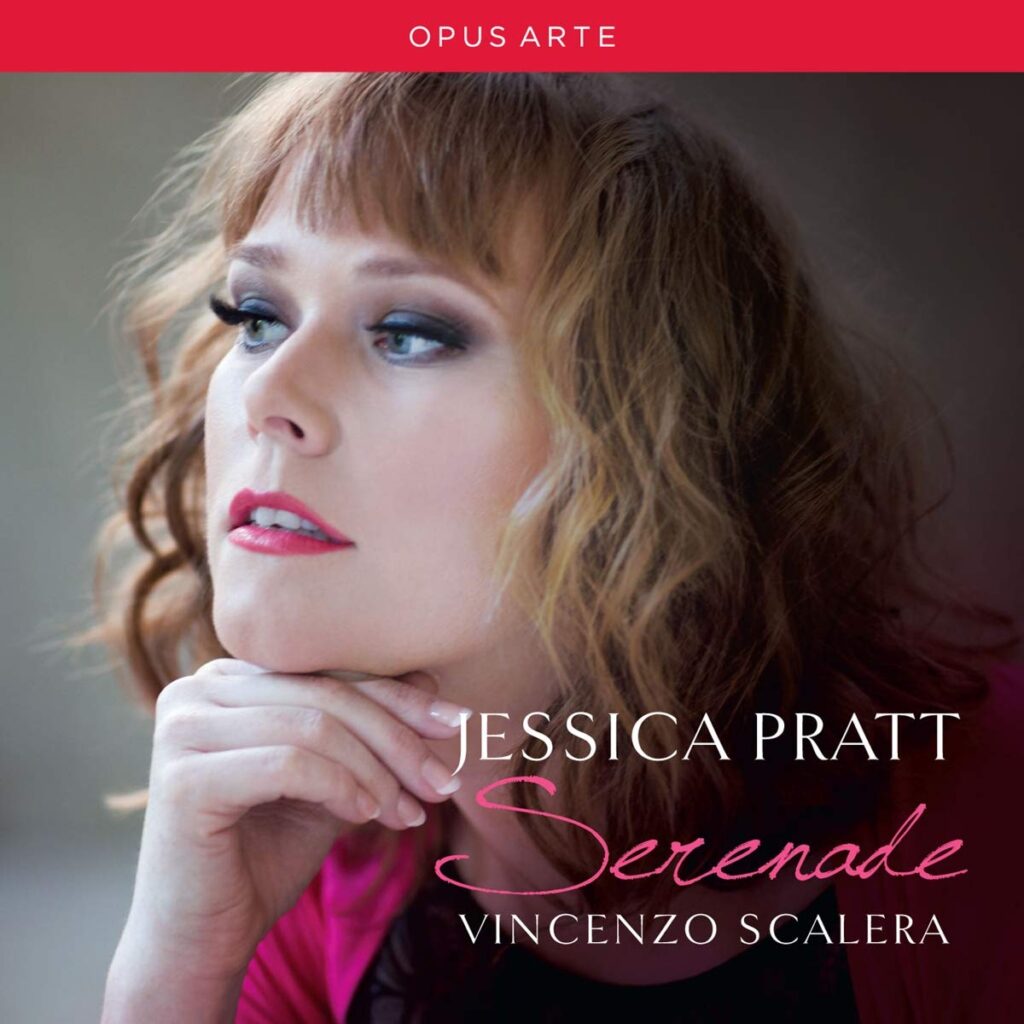
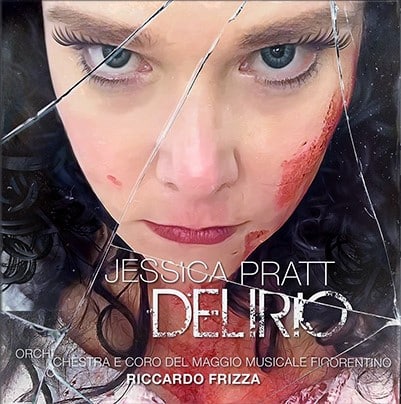
Bellini
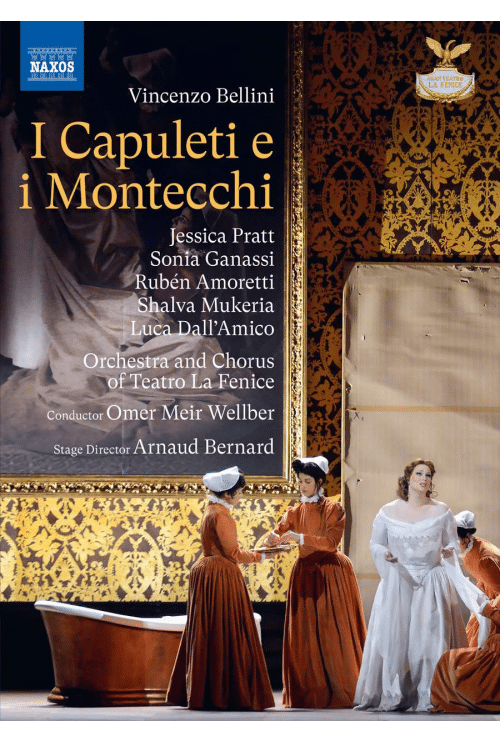
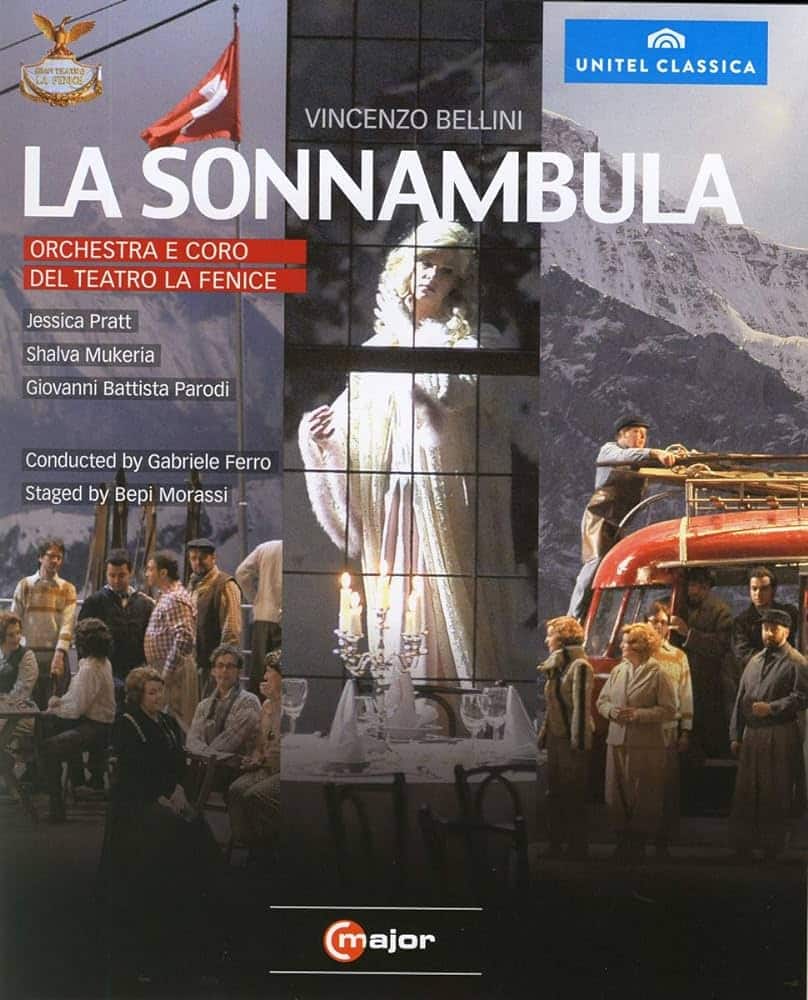
Donizetti
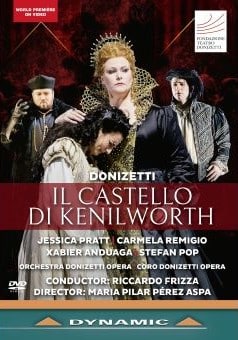
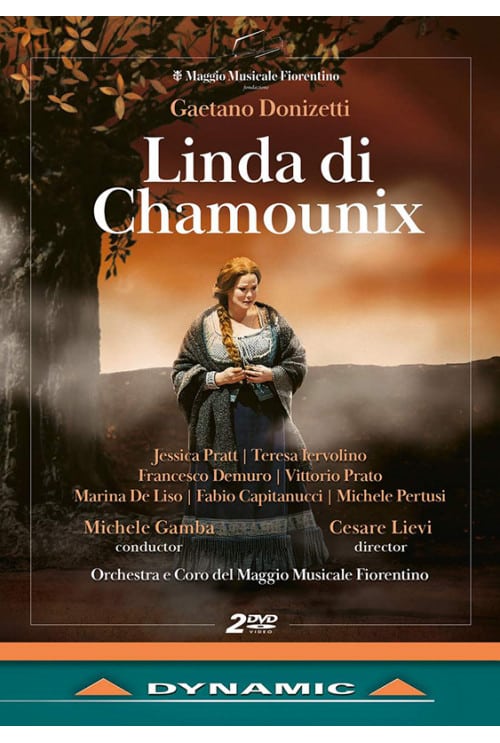
Rossini
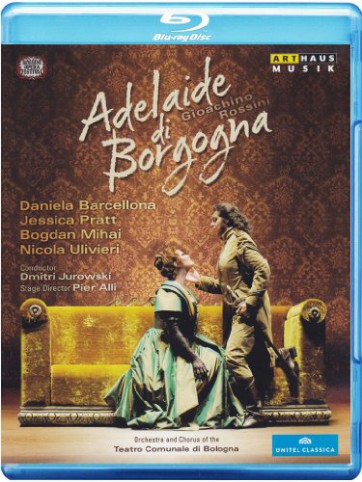
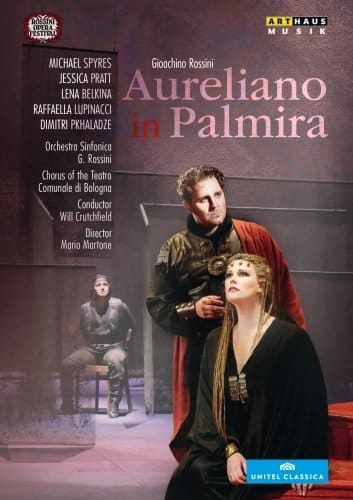
Strauss
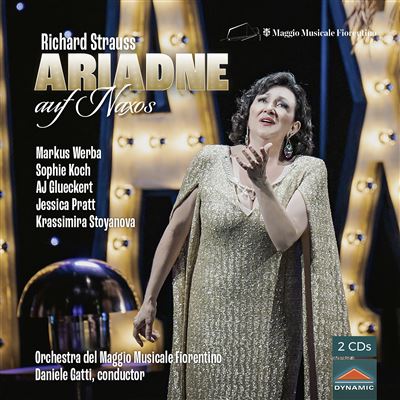
Vaccai
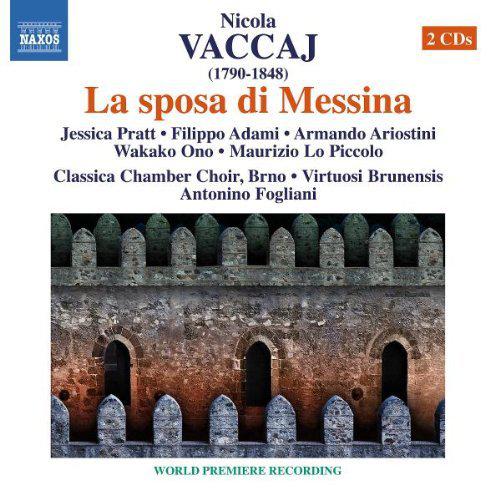
Verdi
